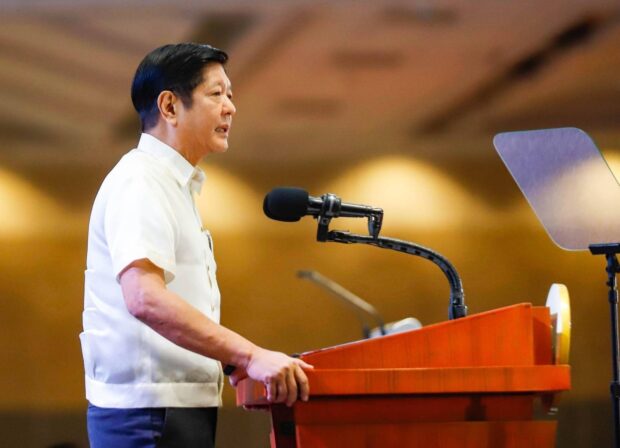Marcos signs ‘New Philippine Passport Act’ to digitalize passport applications

President Ferdinand Marcos Jr. | PHOTO: Official facebook page of Bongbong Marcos
MANILA, Philippines — President Ferdinand “Bongbong” Marcos Jr. has signed into law Republic Act No. 11983, or the New Philippine Passport Act, as announced by the Presidential Communications Office (PCO) on Saturday.
“Under the ‘New Philippine Passport Act,’ the Department of Foreign Affairs (DFA) is mandated to establish and maintain an online application portal and Electronic One-Stop Shop readily accessible on its official website,” the PCO statement read.
The law also authorizes the DFA to provide offsite and mobile passport services outside of its consular offices and foreign service posts, the PCO added.
READ: New PH Passport Act advances in Senate
“The DFA is also mandated by the new law to arrange accommodations for the applications of regular passports by senior citizens, PWDs, pregnant women, minors aged seven years old and below, solo parents, OFWs, and individuals with emergency and exceptional cases,” it further said.
Regular passports are issued to those who are not eligible for diplomatic or official passports.
Regarding penalties for those who illegally confiscate, retain, or withhold any passport issued by the DFA, the new law stipulates that imprisonment of not less than 12 years shall be imposed.
A fine not less than P1 million but not more than P2 million shall also be enforced.
“Passport forgers will face six to 15 years of imprisonment and a fine of not less than P100,000 but not more than P250,000. For offenses relating to improper passport use and other travel documents, offenders will face six to 15 years of imprisonment and a fine of not less than P100,000, but not more than P250,000,” the PCO specified.
“On offenses relating to passport issuances, violators will face six-year imprisonment but not more than 12-year incarceration and a fine of not less than P100,000 but not more than P250,000,” it added.
READ: Proposed ‘new passport law’ hurdles House
The law further specifies penalties for discriminatory practices in passport issuance, including suspension and dismissal from services, a fine of up to P250,000, and imprisonment for up to six years.
The law, which repeals the Passport Act of 1996, was signed last Monday, March 11.
It will take effect 15 days after the completion of its publication, either in the Official Gazette or in a newspaper of general circulation.